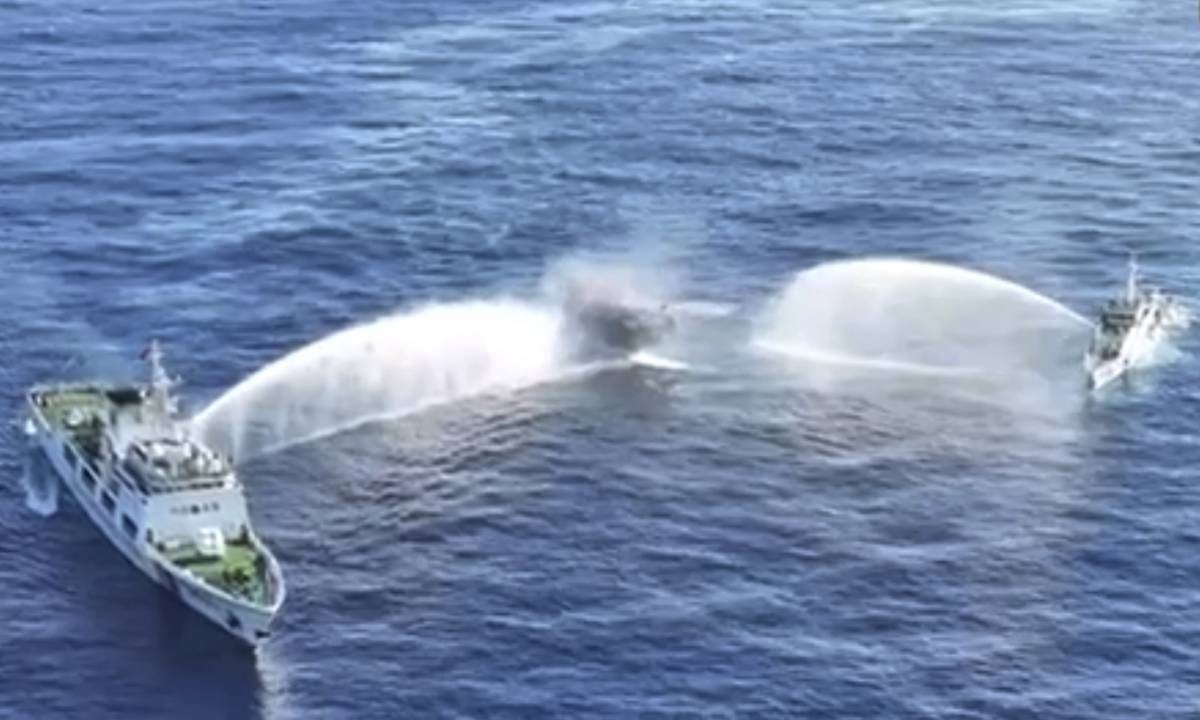Seven Out of Ten Filipinos Support Military Action and Diplomatic Measures in Resolving Issues in the West Philippine Sea
A recent survey conducted by Octa Research has revealed that a significant majority of Filipinos are in favor of the government resorting to military action and diplomatic measures to address the ongoing issues in the West Philippine Sea. The survey, known as Tugon ng Masa, was conducted from March 11-14, 2024, and provides valuable insights into the sentiments of the Filipino population regarding this matter.
According to the survey results, an overwhelming 73 percent of the respondents expressed their desire for the administration of President Ferdinand Marcos Jr. to expand naval patrols and troop presence in the West Philippine Sea. This indicates a strong willingness among the Filipino people to protect their country’s territorial integrity and assert their sovereignty in the disputed waters.
In addition to military action, 72 percent of the respondents also emphasized the importance of resolving the disputes through diplomatic means. This reflects the desire for peaceful negotiations and a diplomatic resolution to the ongoing tensions in the region. It is worth noting that the Filipino people recognize the significance of diplomatic efforts in safeguarding their country’s interests while maintaining stability in the region.
Furthermore, 68 percent of the respondents highlighted the need for the modernization of the military to effectively protect the country’s territories. This sentiment underscores the importance of investing in defense capabilities to ensure the security and sovereignty of the Philippines. The Filipino people understand the necessity of a strong and capable military in safeguarding their national interests.
The survey also explored alternative options for addressing the issues in the West Philippine Sea. Joint military patrols with ally countries garnered support from 43 percent of the respondents, indicating a willingness to collaborate with international partners to ensure the security and stability of the region. Additionally, 32 percent of the respondents expressed their support for the expansion of diplomatic efforts both within and outside the region, recognizing the value of engaging with other nations to find peaceful resolutions. Joint development efforts, on the other hand, received the lowest support at 12 percent, suggesting that the majority of Filipinos prioritize protecting their territorial integrity over shared economic interests.
Regional variations in the survey results were also observed. Respondents from the National Capital Region exhibited the highest support for military action, with 85 percent favoring this approach. This can be attributed to the proximity of the region to the disputed waters and the potential impact on the daily lives of its residents. In contrast, respondents from the Visayas region showed a preference for modernizing the military’s capability to protect the country from external threats, with 77 percent expressing their support for this option. This regional disparity highlights the diverse perspectives within the Filipino population and the varying priorities based on geographical considerations.
When analyzing the survey results based on social class, Class ABC demonstrated a higher inclination towards diplomatic means to diffuse tensions, with 78 percent favoring this approach. On the other hand, Class D and E were statistically tied in their preferences for military action and diplomacy. This suggests that socioeconomic factors may influence the preferences of different social classes, and a comprehensive approach is necessary to address the concerns of all segments of society.
It is important to note that the survey had a sample size of 1,200 respondents and a margin of error of plus or minus three percent. While the findings provide valuable insights into the sentiments of the Filipino population, it is crucial to consider the limitations of the survey methodology and the need for further research to gain a more comprehensive understanding of public opinion.
Overall, the Octa Research survey sheds light on the preferences of Filipinos regarding the West Philippine Sea issue. The majority of respondents expressed their support for a combination of military action and diplomatic measures, emphasizing the importance of protecting the country’s territories while seeking peaceful resolutions. These insights provide valuable context for understanding the sentiments of the Filipino people and can inform policy decisions aimed at addressing the ongoing challenges in the West Philippine Sea.







